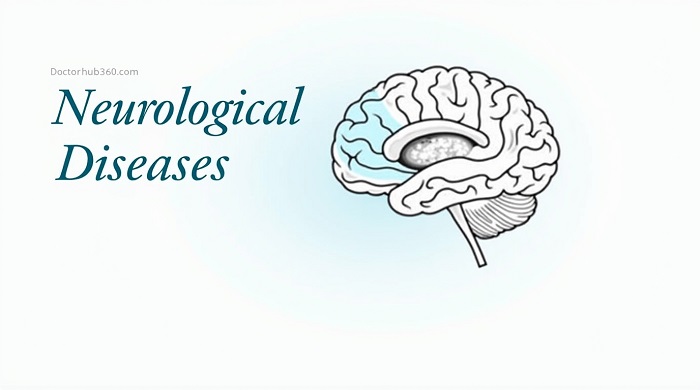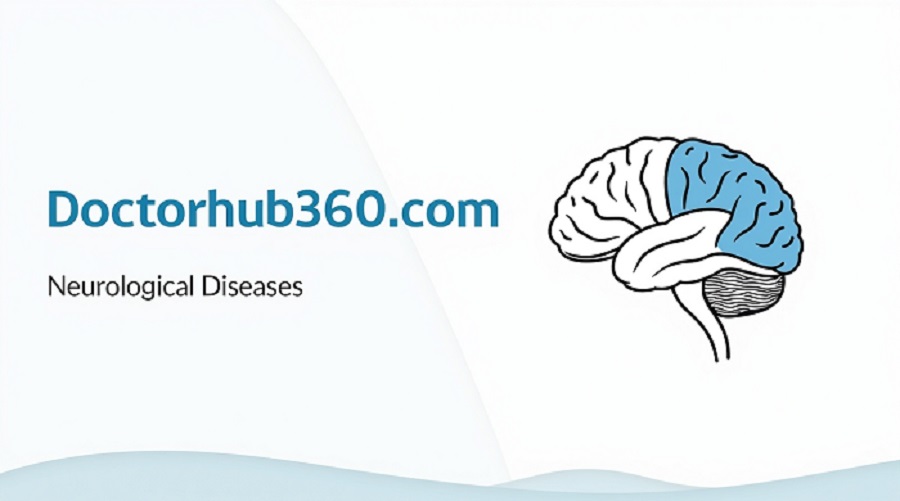Neurological diseases are among the most complex and challenging health conditions faced by millions of people around the world. These disorders affect the brain, spinal cord, and nervous system, leading to disruptions in communication between the brain and the rest of the body. For many patients, neurological conditions are life-altering, creating physical, cognitive, and emotional difficulties that require long-term medical care and support.
At doctorhub360.com neurological diseases, users can explore a wide range of information, resources, and guidance designed to help them understand symptoms, diagnosis, treatment options, and strategies for managing these health challenges effectively. This article offers an in-depth exploration of neurological diseases, covering causes, risk factors, prevention methods, and available treatments, while also highlighting the importance of awareness and early medical consultation.
Understanding Neurological Diseases
The nervous system is one of the most vital systems in the human body, responsible for controlling thoughts, movements, and bodily functions. When diseases disrupt the functioning of the nervous system, they can result in conditions that range from mild headaches to severe degenerative disorders. Neurological diseases include conditions such as Alzheimer’s disease, Parkinson’s disease, epilepsy, multiple sclerosis, migraines, strokes, and neuropathies, each with distinct causes and effects.
At their core, these disorders interfere with the transmission of signals within the nervous system, resulting in impaired coordination, sensory loss, memory problems, or even complete loss of independence. Doctorhub360.com neurological diseases emphasize education and awareness so that patients and caregivers can make informed decisions about treatment and care.

Causes and Risk Factors
Neurological diseases can emerge from a variety of causes, making them complex to diagnose and manage. Genetic predisposition plays a significant role in conditions such as Huntington’s disease or familial Alzheimer’s. Environmental factors, including exposure to toxins, head injuries, and lifestyle habits, may also trigger certain neurological disorders. Infections like meningitis or encephalitis can damage nerve tissue, while autoimmune reactions may lead to diseases like multiple sclerosis.
Age is another critical risk factor, as degenerative conditions often appear more commonly in older populations. Additionally, underlying health conditions such as hypertension, diabetes, and cardiovascular disease can increase the risk of strokes and vascular dementia. By understanding these causes and risk factors, individuals can take steps toward early detection and prevention, which are crucial for managing long-term health outcomes.
Symptoms That Should Not Be Ignored
Neurological diseases manifest through a variety of symptoms, many of which overlap across conditions. Common warning signs include persistent headaches, dizziness, vision problems, memory lapses, seizures, tingling sensations, loss of balance, and difficulty speaking or moving. In some cases, these symptoms appear suddenly, as in the case of a stroke, requiring immediate emergency intervention. In other instances, symptoms progress gradually over time, such as in Parkinson’s disease or dementia.
At doctorhub360.com neurological diseases, users can find detailed symptom explanations, making it easier to recognize when professional evaluation is necessary. Ignoring these signs can delay treatment and worsen the progression of the disease, which is why timely medical consultation is essential.
Diagnosis and Medical Evaluation
The process of diagnosing neurological diseases is thorough and involves multiple medical tools and examinations. Neurologists often start with a physical and neurological exam, checking reflexes, muscle strength, coordination, and sensory responses. Imaging techniques such as MRI and CT scans provide a clear view of the brain and spinal cord, while EEGs help monitor electrical activity in the brain, which is critical in diagnosing epilepsy and seizure disorders. In some cases, lumbar punctures or blood tests may be used to identify infections or autoimmune markers.
The diagnostic process is not only about confirming the disease but also ruling out other possible conditions that might cause similar symptoms. Accessing doctorhub360.com neurological diseases allows patients and caregivers to better understand diagnostic procedures, ensuring they are more prepared when consulting healthcare providers.
Treatment Approaches and Medical Care
Treating neurological diseases often requires a combination of medications, therapies, lifestyle adjustments, and sometimes surgical interventions. Medications are commonly prescribed to manage symptoms, such as antiepileptic drugs for seizures, dopaminergic drugs for Parkinson’s, or cholinesterase inhibitors for Alzheimer’s disease. Physical therapy plays a vital role in helping patients maintain mobility and independence, while occupational therapy focuses on improving daily living activities. In more severe cases, neurosurgical procedures may be necessary, such as deep brain stimulation for Parkinson’s or surgical removal of brain tumors.
Holistic approaches, including dietary changes, stress management, and rehabilitation programs, also play an important role in long-term care. Doctorhub360.com neurological diseases highlights these treatment strategies, giving readers a comprehensive understanding of how medical science and supportive therapies work together to improve patient outcomes.
Living with Neurological Diseases
A diagnosis of a neurological disease is life-changing, both for the patient and their loved ones. Beyond the physical symptoms, these conditions often bring emotional and psychological challenges, including anxiety, depression, and feelings of isolation. Support systems become vital, whether through family involvement, caregiver support, or professional counseling. Patients benefit greatly from rehabilitation programs, support groups, and mental health services that provide guidance and encouragement.
Daily routines may require adjustments, but with the right strategies, many patients can maintain independence and enjoy meaningful lives. Resources at doctorhub360.com neurological diseases provide valuable insights into lifestyle adaptations, coping mechanisms, and community support systems that empower patients to live with dignity and resilience.
Importance of Early Intervention
One of the most important messages emphasized in neurological healthcare is the value of early intervention. Many neurological diseases progress over time, and early detection can slow down their development and improve quality of life. For instance, early treatment of multiple sclerosis can delay disability, while quick response to stroke symptoms can prevent long-term damage. Recognizing warning signs and seeking immediate medical care can make a significant difference. Educational resources such as doctorhub360.com neurological diseases encourage individuals not to dismiss unusual symptoms and to take proactive steps in managing their health.
The Role of Technology and Research
Modern advancements in technology and medical research are transforming the way neurological diseases are diagnosed and treated. Breakthroughs in neuroimaging, genetic testing, and artificial intelligence are helping doctors identify conditions more accurately and at earlier stages. Treatments such as stem cell therapy, gene therapy, and targeted drugs are opening new possibilities for patients with previously untreatable disorders. Research into brain-computer interfaces and neuroprosthetics is giving hope to individuals with paralysis and severe disabilities. By staying informed through platforms like doctorhub360.com neurological diseases, patients and caregivers can keep up with these innovations and understand how they may benefit from emerging medical breakthroughs.
Raising Awareness and Education
Public awareness about neurological diseases is essential in reducing stigma and promoting better healthcare access. Many patients suffer silently due to fear, shame, or lack of knowledge about their conditions. Educational platforms such as doctorhub360.com neurological diseases play a key role in bridging this gap by offering accurate, accessible, and up-to-date information. By promoting awareness campaigns, supporting community events, and sharing patient stories, society can build a more supportive environment for individuals affected by these diseases. Awareness also drives funding and research, ensuring continuous progress in developing treatments and improving care standards worldwide.
Conclusion: Building a Supportive Future
Neurological diseases represent a significant global health challenge, but with proper awareness, early diagnosis, and effective treatment, patients can lead fulfilling lives despite their conditions. Platforms like doctorhub360.com neurological diseases are vital in providing comprehensive resources, guidance, and support to both patients and caregivers. By combining medical science, community support, and technological innovation, the future holds promise for better management and potential cures for many neurological conditions. Every step toward understanding and awareness brings us closer to a world where these diseases can be managed with dignity, compassion, and hope.
FAQs About Neurological Diseases
1. What are the most common neurological diseases?
Some of the most common neurological diseases include Alzheimer’s disease, Parkinson’s disease, epilepsy, multiple sclerosis, stroke, and migraines.
2. Can neurological diseases be cured completely?
Most neurological diseases cannot be completely cured, but treatments can manage symptoms, slow progression, and improve quality of life.
3. How can I reduce my risk of neurological diseases?
Maintaining a healthy lifestyle, avoiding smoking, managing stress, exercising regularly, and controlling conditions like diabetes and hypertension can reduce risks.
4. When should I see a neurologist?
You should consult a neurologist if you experience unexplained headaches, seizures, memory loss, numbness, difficulty walking, or sudden changes in speech and vision.
5. Does doctorhub360.com provide medical advice?
Doctorhub360.com neurological diseases provide educational content and resources, but should not replace professional medical advice. Always consult a qualified healthcare provider for diagnosis and treatment.



